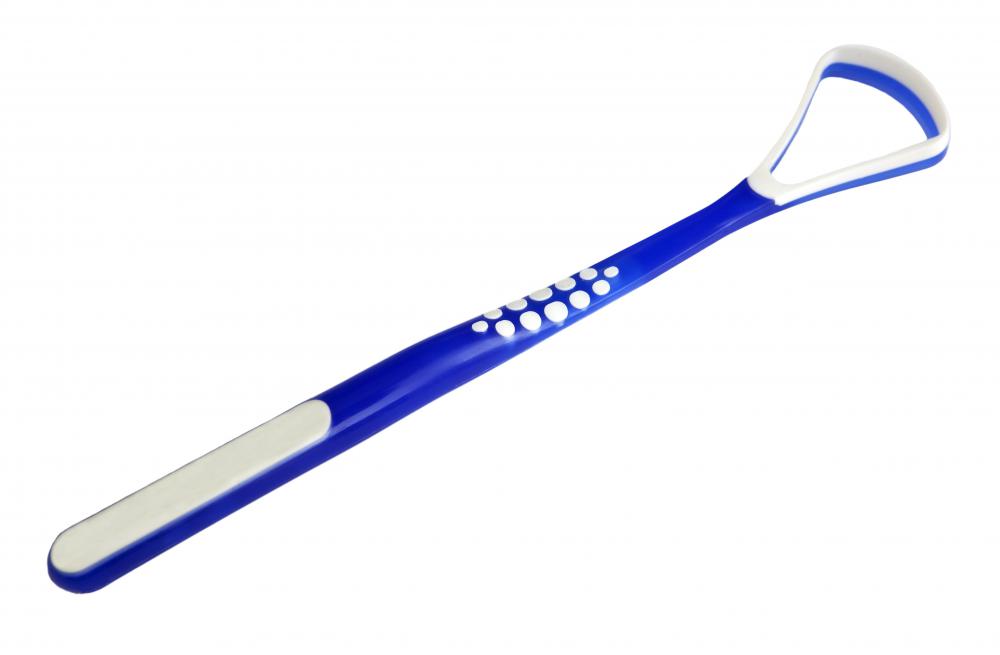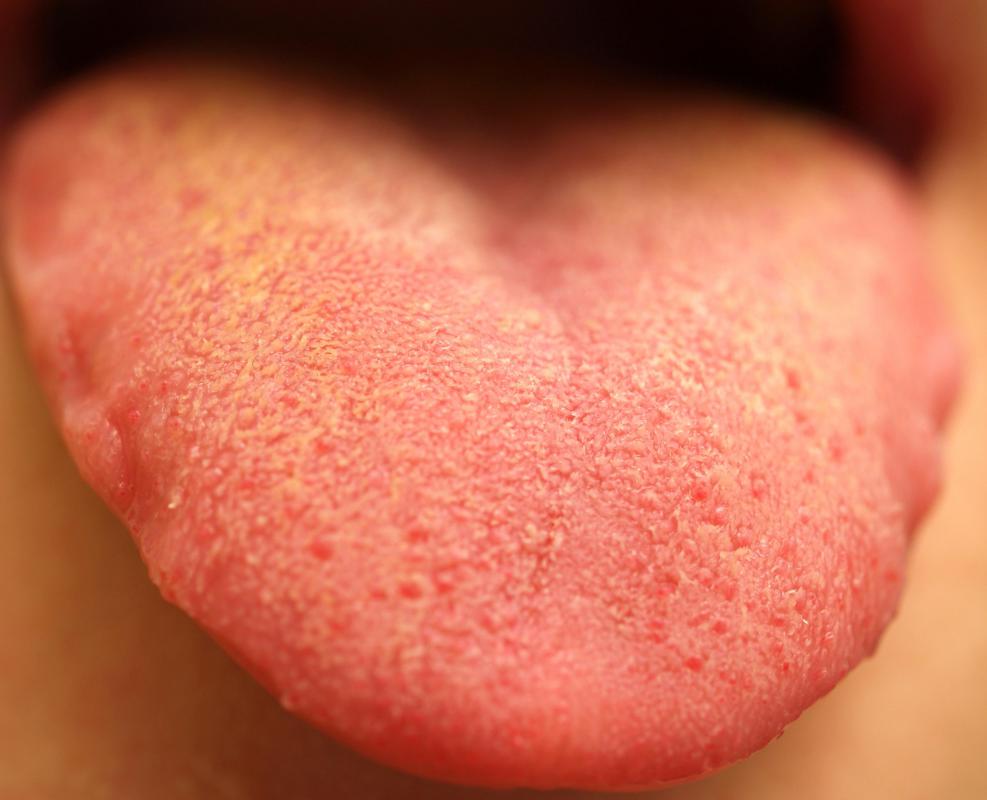At WiseGEEK, we're committed to delivering accurate, trustworthy information. Our expert-authored content is rigorously fact-checked and sourced from credible authorities. Discover how we uphold the highest standards in providing you with reliable knowledge.
What Factors Affect the Smell of Saliva?
The factors that affect the smell of saliva generally have to do with diet, health, and oral hygiene. Though the smell of one’s breath generally comes from the lungs, these scents can leach into the saliva over time, enhancing the smell. This may be a pleasant side-effect for those with fresh-smelling breath, but those with halitosis can develop a chronic bad taste in their mouths. Fortunately, the factors that affect how saliva smells can often be steered toward the pleasant side of the spectrum, either through lifestyle changes or through medication.
Diet is one of the primary factors that affect the smell of saliva. Those that eat large amounts of strongly scented foods may develop saliva that reflects the odors in those foods. Garlic, onions, cabbage, turmeric, and hot peppers may give saliva a slightly savory scent. This may not be unpleasant if it is only subtle, but those that eat these ingredients frequently may want to end their meals with a sprig of parsley or a cup of black or green tea. Parsley and tea often have neutralizing effects on odors.

Eating a lot of fats and refined foods may also give saliva an unpleasant scent. Gasses from the stomach can permeate the mouth, leaching into the moisture there. Those with digestive issues should gradually incorporate more fiber into their diets, lower fat intake, and snack on fruits and vegetables instead of foods filled with empty calories. This often helps the body expel waste that may be giving the mouth an unpleasant odor.

Oral hygiene is a big factor when it comes to the smell of saliva. Food caught in the teeth and gums may begin to decay, releasing unpleasant odors into the rest of the mouth. Bacteria growing on the tongue can also be a culprit. Alleviating these problems is usually as simple as flossing and gently brushing the tongue with a tongue scraper or a toothbrush. When using a toothbrush, brush gently from the back of the tongue to the tip several times.

Those that try all of the above remedies and can’t seem to freshen their breath may want to consult a health care provider. Oral diseases, like gingivitis, cavities, and diabetes, can also cause smelly saliva. Those seeking medical help should be able to describe any other unusual symptoms in the body and give their doctors a general timeline for how long the symptoms have been happening. When the disease is managed, the smell of saliva should return to normal.
AS FEATURED ON:
AS FEATURED ON:

















Discussion Comments
@serenesurface: Can you please mention the name of the medicine here?
@Anamur: It seems like you are talking about me there. I tried everything possible but nothing helps. Please tell me which doctor helped your friend. It sounds like he can help me too. --Nash
@feruze-- I know what you mean. Have you tried sucking on mints? Mints usually help a lot, so does eating parsley or sucking on dry clove, fennel or aniseed.
Have you ever been to an Indian restaurant? If so, you might have noticed a colorful mix of fennel and aniseeds served after the meal. It is called "mukhwas" and sucking and chewing on some of this after eating garlic and onion gets rid of bad breath.
You can also buy this from Southeast Asian grocery stores and keep it with you to use it after meals. It's what I do personally, it works wonders.
I had a friend who suffered from bad breath. No matter what he did, he couldn't get rid of it. It was becoming really stressful for him because he always felt embarrassed and tried not to talk much. He went to the dentist but the dentist said there was nothing wrong with his teeth or mouth.
His parents decided to take him to a few other doctors to see if there was else going on. One doctor did a special test for him where they basically took a sample of his stomach juice and ran a lab test on it. It turns out that he had a weird fungal infection in his stomach!
The doctor gave him medicines and his bad breath disappeared completely. It was unbelievable how quickly it went away. Poor guy, he was suffering from bad breath for years and blamed himself for it. He has so much more self esteem now and he is much more social. I'm really happy he found out the cause and was able to treat it.
Post your comments